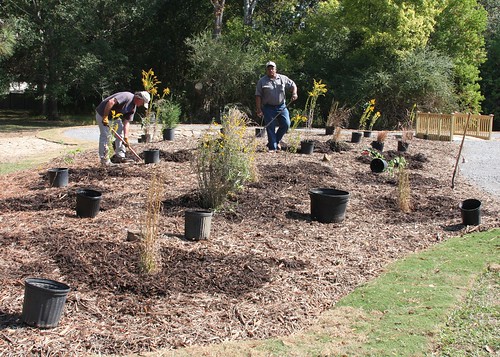The National Agricultural Wildlife Conservation Center (AWCC) in Madison, Mississippi is partnering with the city of Madison to create a pollinator garden.
The AWCC conducts fish and wildlife research nationwide and evaluates wildlife response to Farm Bill programs. As part of USDA’s Natural Resources Conservation Service, the AWCC helps put conservation on the ground on our nation’s private and working lands.
Pollinators are responsible for the reproduction of three-fourths of the world’s plants. Most fruit, vegetable and seed crops—and other plants that provide fiber, medicines and fuel—are pollinated by animals. Some scientists estimate that one out of every three bites of food we eat exists because of pollinators like bees, butterflies, birds, and beetles.
In recent years many pollinators have suffered from habitat loss, disease, parasites and environmental contaminants. In response, NRCS and other USDA agencies have made pollinator health a priority in Farm Bill and other programs.
The AWCC-Madison pollinator garden will be a half-acre filled with pollinator-friendly plants, a water feature, paths for visitors and educational displays about pollinators and conservation. The area will be a demonstration of how to develop a pollinator-friendly garden at home and pollinator-friendly buffers on farms.
The garden will complement AWCC’s headquarters, a National Historical Registry structure built in the 1870s and known locally as the “Strawberry House.” Planting has begun and will continue through next summer. The AWCC-Madison pollinator garden is scheduled to open to the public in the spring of 2011.
For more information about NRCS’ pollinator efforts, visit our webssite.
Follow NRCS on Twitter:
Check out other conservation stories on the USDA blog.





